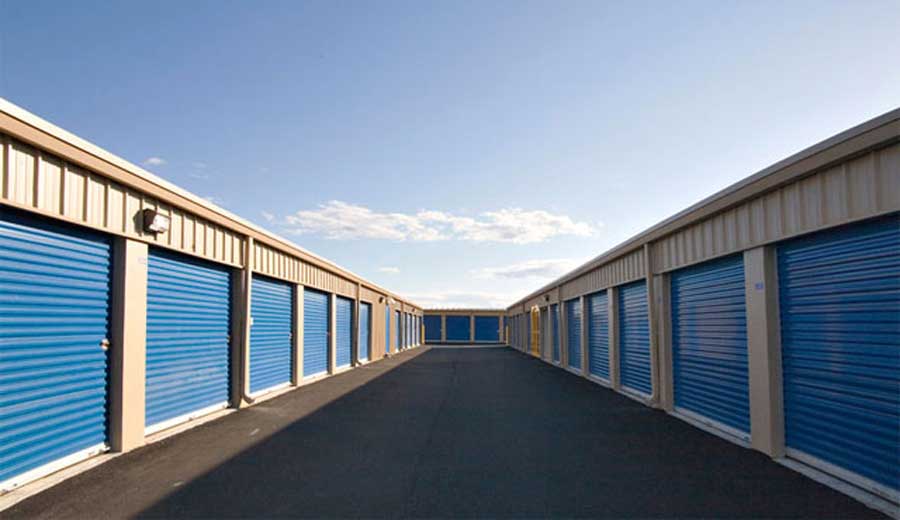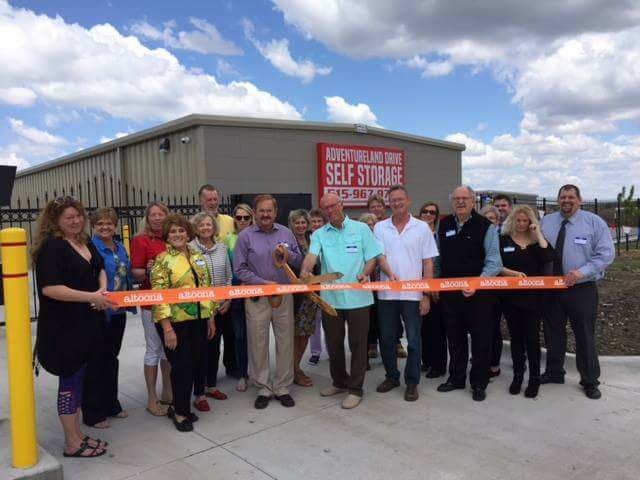WHEN IT COMES TO REAL estate investing, profits and losses track to market cycles.
Many residential real estate investors shy away from dealing with tenants and maintenance. As a result, they’re seeking other real estate asset classes to invest in.
After more than a decade of flipping single-family homes, licensed Realtor and general contractor Scott Mednick is looking at an alternative asset class that is less hands-on but still has high profit potential: self-storage facilities.
“I’m looking for something that in a bad economy does great, and in a good economy does great,” says the broker-owner of Marblehead Real Estate Partners in San Clemente, California.
“The bottom line is that if we go into a bad housing market, people have to put their stuff somewhere,” says Mednick, who is also president of the Orange County Real Estate Forum investors club. “When the economy is good and people buy too much stuff they have to put it in storage. You’re winning as the market goes down, and winning as the market goes up.”
By the numbers. The Self Storage Association estimates there are about 49,000 primary self-storage facilities, totaling 2.6 billion square feet of storage space and generating approximately $32 billion in revenue annually.
The association estimates the national average for units per facility is about 540 units, and that facilities nationwide are about 90 percent occupied. The percent of U.S. households accounting for that occupancy is estimated to be about 9.3 percent.
Asset class works for passive and active investors. Whether an investor wants to buy and own a facility outright, or just wants to benefit from the long-term economic benefits the asset class has demonstrated, self-storage facilities stand to serve both types of investors well.
For the investor who wants to park his or her money and let someone else handle the day-to-day operations, a number of real estate investment trusts specialize in this asset class. These may be good sources of passive income over time.
“In general, self storage has been on a great run,” says Ryan Burke, an analyst for Green Street Advisors in Newport Beach, California. “Growth has outpaced any other real estate property type for the past seven years. Self-storage properties are about 75 percent higher from the prior peak in 2007, whereas apartments, industrial and other commercial properties are only 25 percent above the prior peak.”
This means that private and mom-and-pop investors now have a good opportunity to delve into the self-storage arena.
“As an asset class, self-storage has the potential to generate more income streams than just monthly rent, such as packing materials and truck rentals,” says Rick Sharga, executive vice president at online real estate marketplace Ten-X. “Still, whether you buy and manage a facility yourself or purchase a portfolio and have managers running them for you, self-storage is very much a retail business that is very hands-on.”

Steady cash flow. For investors looking to buy and hold self-storage for the long run, Burke says they can expect a good steady cash flow to result.
Burke warns that self-storage properties are a lot more difficult to run than people typically think. Tenant turnover is high: 7 to 8 percent of customers move out every month, making it a very operationally intensive business.
A “safe” investment. For individual investors looking for an alternative to being a landlord, self-storage is considered a relatively safe real estate asset type with many positive characteristics.
Chief among them is the fact that self-storage is basically the monthly rental of various-sized interior spaces made up of steel walls and a concrete floor – nothing more. Once a renter vacates, the owner or manager can just blow out the space and rent it out again. If the lessee doesn’t pay the rent and doesn’t move out, the contents can be seized under the state’s lien laws and auctioned off, with the proceeds going to the owner of the facility.
“For the small investor, it’s a safe investment,” says Mark Helm, a self-storage investor, author and coach based in Louisville, Kentucky. “It’s the asset class with the lowest foreclosure rates.”
Long-time investor and coach Scott Meyers, who is based in Fishers, Indiana, switched from single-family homes and apartments to self-storage for several reasons: ease of financing, overall profitability potential and opportunity to increase cash flow and value.
“Self-storage does even better during a recession because people need a place to store their stuff,” Meyers says. “It’s recession-proof and inflation-proof, and you don’t have to worry about folks going bankrupt.”
It’s all about location. Helm estimates that for roughly 64 percent of all owners of U.S. self-storage facilities, it’s the only commercial property they own.
The market for self-storage facilities relies on a number of factors, and chief among them is, of course, location. Helm’s advice for small investors interested in self-storage properties is to look in areas outside the radar of the REITs: 25,000-to-30,000-square-foot properties with room for expansion. Alternatively, he suggests seeking out underutilized or vacant commercial space and repurposing it.
Meyers recommends that investors start out by looking at facilities in their own backyard.
“You’ll never know what you’ll find until you begin to look,” he says. “Also, consider places you vacation and places you’ve lived before.”
Helm has changed his investment strategy for future purchases.
“Initially we were in the larger cities,” he says. “Now we’re going into some of the second-tier markets, because that’s where the opportunities are.”
Storage Development Partners approach is grounded in our deep experience and knowledge of self-storage, real estate and financial markets.
We focus on value creation that is in line with market dynamics and the client’s risk profile. Each engagement undergoes intense scrutiny to make sure the capital needs are met in the most economically efficient way to optimizes returns. For more information, or to set up an appointment, contact Dave Fegley or Josie Hart.
JOSEPHINE HART
Office: 561-235-5734
Mobile: 770-880-5309
josephine@storagepartners.us
DAVID FEGLEY
Mobile: 515-208-9205
Fax: 563-594-5202
dave@storagepartners.us

This article was written by Joel Cone, writer for The Smarter Investor and contributor to many business periodicals.
While Joel initially worked as a real estate sales associate and appraiser. In 2006, he joined the marketing staff at RealtyTrac as a senior staff writer and was a member of the creative team that published the Foreclosure News Report, an online newsletter named Best Real Estate Newsletter by the National Association of Real Estate Editors in 2009.






You must be logged in to post a comment.